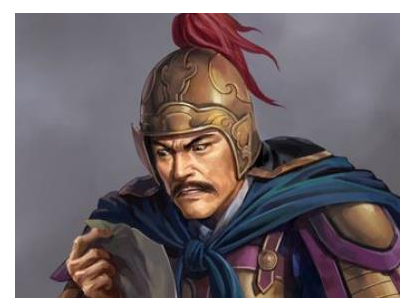Amidst the numerous battles in the history of the Three Kingdoms, the Battle of Guandu undoubtedly stands as a turning point. This clash not only determined the fate of the two major forces of Yuan Shao and Cao Cao, but also had profound impacts on the political landscape of the entire North China region. However, why did Cao Cao face a more severe shortage of food and grass supplies than Yuan Shao in this crucial battle? Why did his system of garrison farming fail? And how did he defeat Yuan Shao despite the scarcity of food and grass?

Firstly, let's delve into why Cao Cao lacked food and grass supplies more than Yuan Shao in the Battle of Guandu. According to historical records, Cao Cao's military strength was far inferior to Yuan Shao before the battle, and most of his territories were captured after turmoil, thus their foundation was not stable, rendering ineffective storage of war supplies. Moreover, although Cao Cao's system of garrison farming alleviated the army's food issues to a certain extent, due to years of continuous warfare, farmers were unable to farm peacefully, coupled with Yuan Shao's blockade of regions like Ji Province, further aggravating Cao Cao's food supply difficulties.
Then, why did Cao Cao's system of garrison farming fail at this time? The original intention of the system was to address the army's food issues through soldiers cultivating farmland, but in large-scale wars like the Battle of Guandu, the system could not meet the demands of tens of thousands of troops. Additionally, the duration and uncertainty of the war also made farmers unable to farm peacefully, severely affecting agricultural production.
Despite facing the predicament of food and grass scarcity, Cao Cao achieved a decisive victory in the Battle of Guandu. The crucial reasons behind this were: firstly, Cao Cao was adept at using talents, having a strong team of advisors who provided him with correct strategic decisions. Secondly, his army was well-disciplined and morale was high, enabling them to maintain combat effectiveness even under the shortage of food and grass. Lastly, Cao Cao employed flexible tactics, successfully destroying Yuan Shao's food and grass supply lines through ambushes, fire attacks, and other means, thus forcing Yuan Shao into a passive position.
In summary, Cao Cao's food and grass dilemma and the failure of his system of garrison farming in the Battle of Guandu were caused by various factors. However, through reasonable strategic deployment and outstanding command abilities, Cao Cao ultimately defeated the more powerful Yuan Shao, laying the foundation for establishing his own hegemony. This historical event teaches us that in war, apart from military strength, strategic planning and the utilization of talents are also crucial for achieving victory.
Disclaimer: The above content is sourced from the internet and the copyright belongs to the original author. If there is any infringement of your original copyright, please inform us and we will delete the relevant content as soon as possible.































